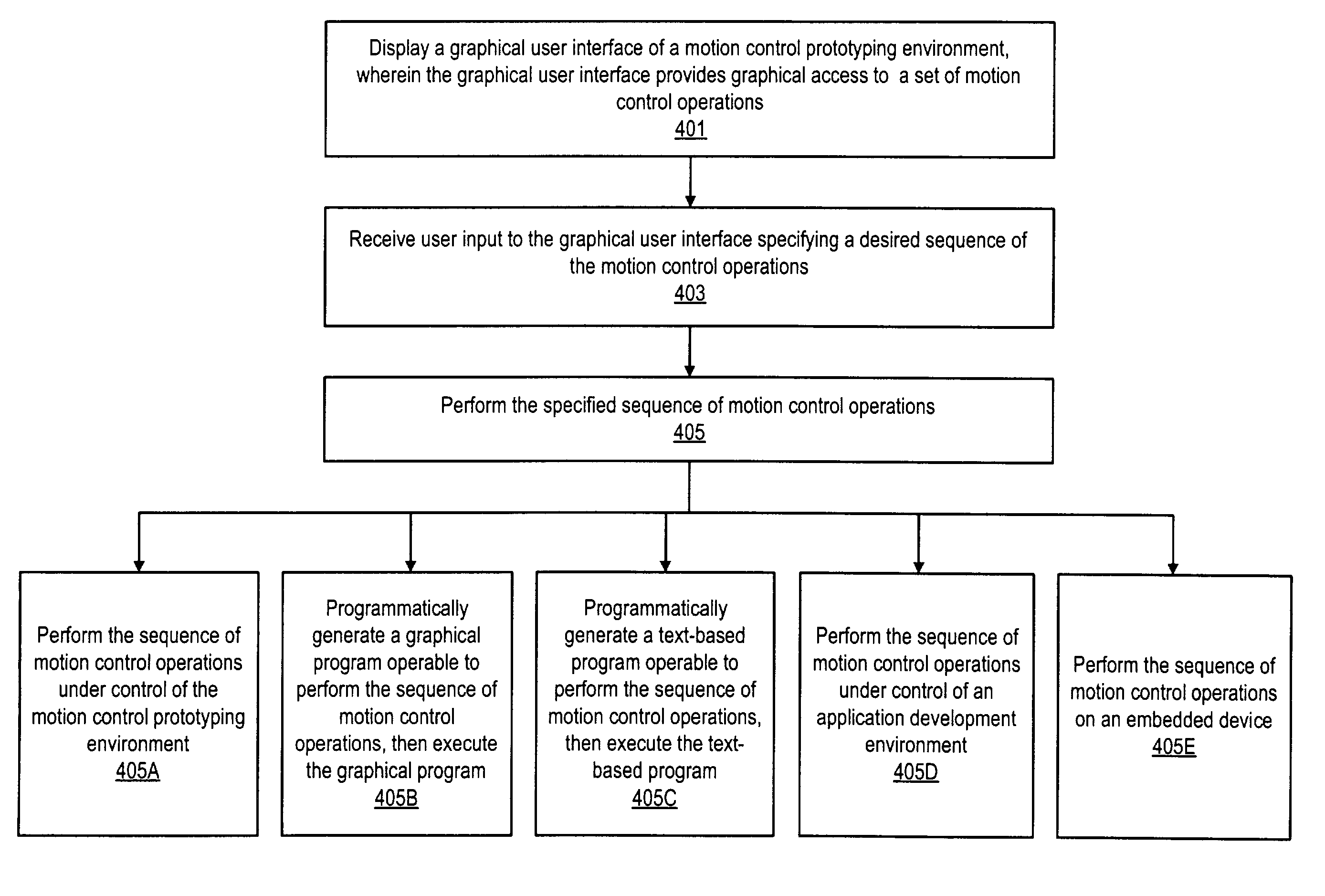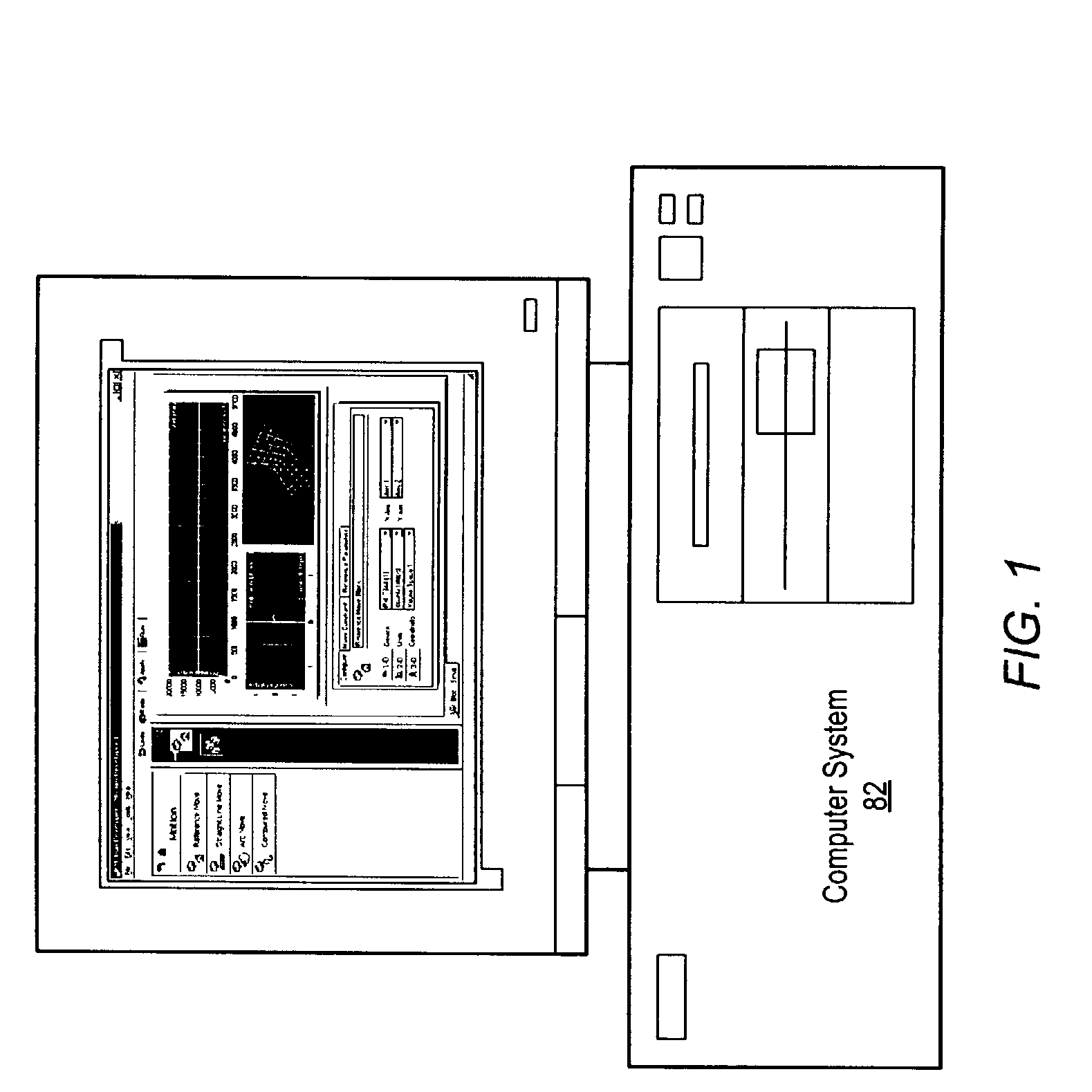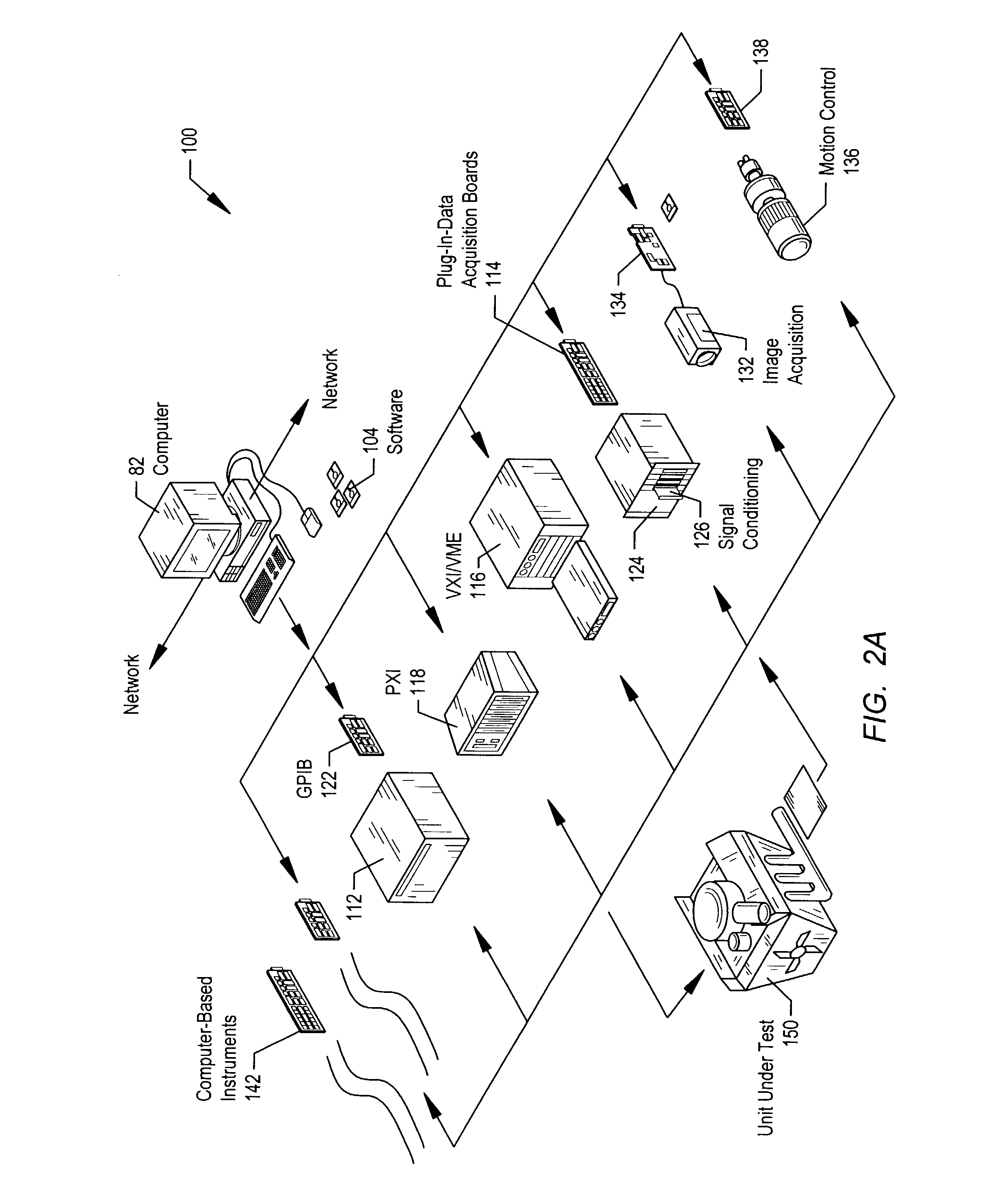System and method for graphically creating a sequence of motion control operations
a motion control and sequence technology, applied in the field of computer-based motion control applications, can solve the problems of steep learning curve in the development of motion control applications, and achieve the effect of easy and efficient development/prototyp
- Summary
- Abstract
- Description
- Claims
- Application Information
AI Technical Summary
Benefits of technology
Problems solved by technology
Method used
Image
Examples
use case 4
sistors
[0189]The fourth example use case pertains to retrofitting a system used to test resistors. Assume that the potentiometer head is currently moved manually, and the resistance value of the resistor is tested using a DAQ device. It may be desirable to automate the system using a motor that can move the potentiometer head automatically. Using a single axis, the potentiometer head can be moved in a sinusoidal fashion at different frequencies, and analysis of resistance readings can be performed in conjunction with a DAQ device.
[0190]This application may be implemented using a sequence in the motion control prototyping environment, wherein the sequence includes a contoured move operation. A table of position values describing the sinusoidal motion may be loaded, and the contoured move operation may cause the desired sinusoidal motion. For different frequencies, different tables can be specified.
[0191]Similarly as described above, the motion control performed by the sequence may be...
use case 5
ding
[0192]The fifth example use case pertains to a flying welding application. The objective is to weld one spot on a part moving on a conveyor belt. The welding gun is installed on a linear arm controlled by a linear motor. The welding needs to happen without stopping the conveyor belt.
[0193]This application may be implemented using a sequence in the motion control prototyping environment as follows:[0194]A reference move operation to move the arm to its starting position waiting for a part.[0195]A gearing operation which may start on a high-speed capture trigger. This operation gears the linear axis to an encoder mounted on the conveyor belt. The gearing ratio is set at 2:1.[0196]A wait block to wait for a predetermined amount of time, to allow the linear arm to be positioned over the piece to be welded.[0197]A gearing configuration operation to change the gear ratio to 1:1. It writes to a digital output bit to start the welding. The arm may now move at the same speed as the conve...
example
Blending Moves
[0389]In this example, the user uses the NIMotion control property pages to change the previously configured task so that it uses blended moves.
[0390]1. On the Tasks property page, the user sets Type to Blended moves.
[0391]2. The user switches to the Moves property page and selects the first move. In this task, the moves should begin blending before the previous move starts decelerating. On the Velocity subtab, the user sets Blend to before decelerating.
[0392]3. Because the user specified that he wants to start blending before decelerating, the blend factor is automatically set to −1. This value causes the pending move to start when the previous move finishes its constant velocity segment and starts to decelerate.
[0393]4. The user configures each move in the task with the same three settings.
[0394]5. The user runs the program. Now the moves transition more smoothly. The user stops the program when finished testing.
The BlendCompleted Event
[0395]If the user sets the task...
PUM
 Login to View More
Login to View More Abstract
Description
Claims
Application Information
 Login to View More
Login to View More - R&D
- Intellectual Property
- Life Sciences
- Materials
- Tech Scout
- Unparalleled Data Quality
- Higher Quality Content
- 60% Fewer Hallucinations
Browse by: Latest US Patents, China's latest patents, Technical Efficacy Thesaurus, Application Domain, Technology Topic, Popular Technical Reports.
© 2025 PatSnap. All rights reserved.Legal|Privacy policy|Modern Slavery Act Transparency Statement|Sitemap|About US| Contact US: help@patsnap.com



